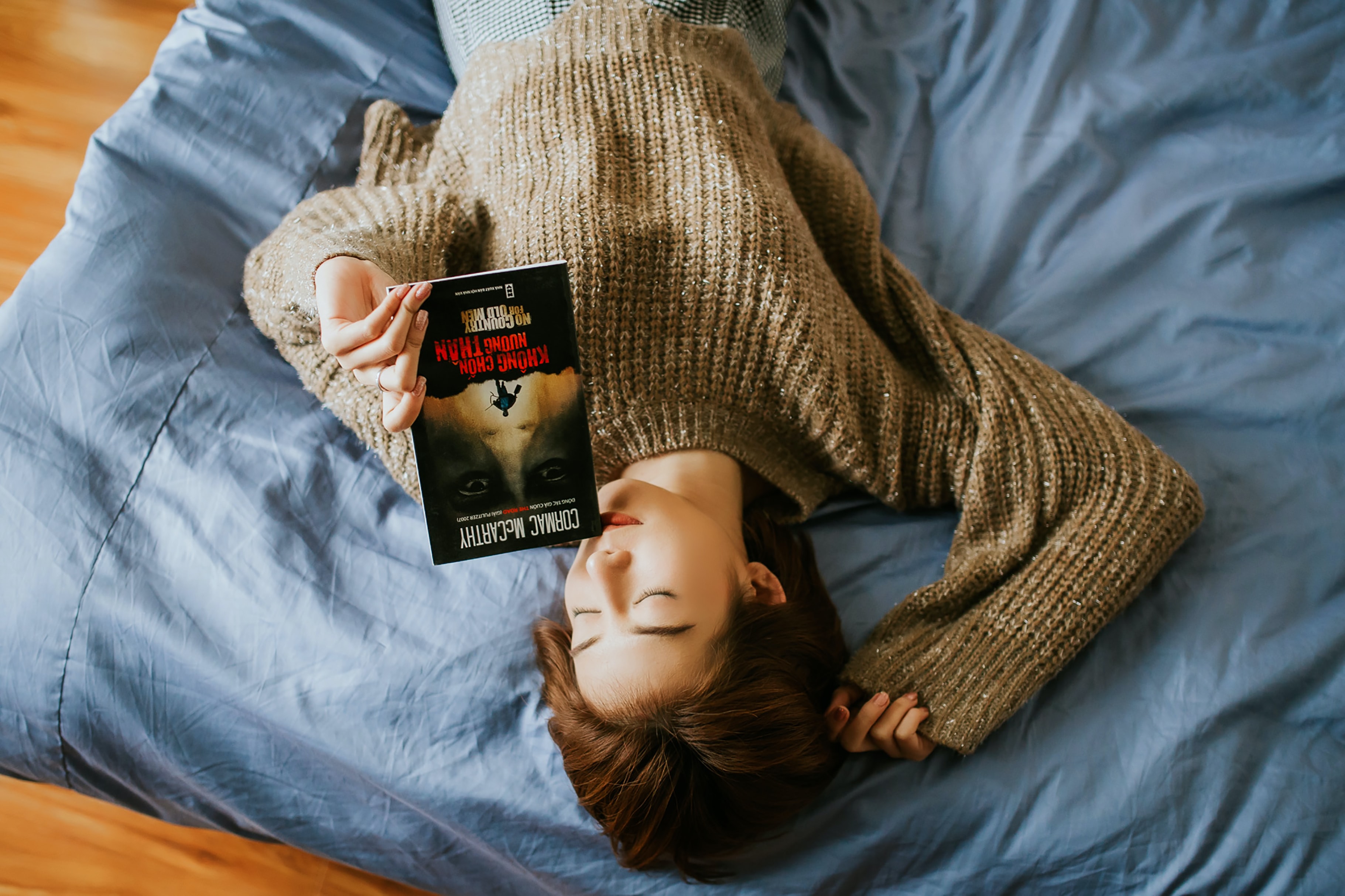 Recent research found that “leisure reading is associated with several important educational and cognitive benefits, and yet fewer and fewer young adults are reading in their free time.” Even though reading has declined for some age groups, mental health providers still practice bibliotherapy, using books as part of therapy in treating psychological disorders. Several experts shared their perspective on the benefits of this practice.
Recent research found that “leisure reading is associated with several important educational and cognitive benefits, and yet fewer and fewer young adults are reading in their free time.” Even though reading has declined for some age groups, mental health providers still practice bibliotherapy, using books as part of therapy in treating psychological disorders. Several experts shared their perspective on the benefits of this practice.
Counselor Kait Towner, LMHC, RPT, CCPT, IMH-E recommends books for caregivers to read with their children because she feels these materials communicate to children and parents in ways that she cannot. “Not only does bibliotherapy aid the child in working on skills learned in therapy out of the session, it encourages the positive parent-child interaction of reading together. Caregivers also feel an increased sense of validation of being able to support their child through their difficulties by reading with them.” Amanda Levison, M.S., LMHC, LPC, CCBT, with Neurofeedback & Counseling Center of Pennsylvania also recommends children’s books. “They are great to use as a tool for the child to relate to the characters and see what the character is learning. These resources offer another perspective, teaching valuable lessons, and helping clients grow.”
Psychotherapist Susanna Guarino, MS, LMHC suggests self-help books that relate to a client's experience. “Reading the right book at the right time can change your life. For example, clients with family members who have borderline personality disorders often benefit from reading 'Stop Walking on Eggshells'. Clients who struggle with self-criticism and self-judgment benefit from 'Self-Compassion' by Kristen Neff. Bibliotherapy works wonders with clients who already like to read and are motivated to do so but you can't force it. You have to meet clients where they are, and some just don't have the time or inclination to read a book."
Psychologist Margaret (Peggy) DeLong, Psy.D. also uses bibliotherapy when she knows of a good book that matches a client’s struggle. Like Guarino, she has specific books in mind for different mental health needs, but when it comes to helping clients experience less stress and making more time for joy, she recommends they read anything they enjoy. “Reading is one simple activity that is free or low cost and done almost anywhere. In my book, ‘FEELING Good: 35 Proven Ways to Happiness, Even During Tough Times’, I include research on the mental health benefits of reading. One study found that just six minutes of reading reduces stress. Reading also boosts empathy, helps us to feel connected to something greater than ourselves, and helps us understand social relationships. It serves as a temporary reprieve from our own worries of the day.”
“We encourage our clients to read during their stay at our residential facilities,” said Grant Clark, Clinical Director at Asana Recovery. “Bibliotherapy not only teaches them about their mental health and addictions, but it has proven to stimulate their minds and give them a sense of accomplishment throughout each day.”
People struggling with mental health often have sleep issues which is another area where bibliotherapy can help. Stephen Light, co-owner of Nolah Mattress said, “Since reading is a calming activity, it helps induce a relaxing state. When people relax before bed, it helps them sleep.”
While the experts responding to this query are proponents of reading, they recognize that not everyone shares this interest. DeLong noted, “Sometimes people are motivated to do something when they know that there is “proof” that their efforts will pay off, which is why I share research that demonstrates that reading benefits mental health. I also motivate people to read by using habit replacement. Most people find themselves mindlessly scrolling on their phones or devices which does not benefit mental health. When a client has an urge to check the phone for entertainment, I suggest paying attention to that urge and pick up a book instead of the phone.”
“My top tip for motivating someone to read is to find a book with a topic or genre within their interest,” added Light. “People like to read books about their hobbies, passions, or topics that interest them. It is also so easy to find good recommendations on the internet. Add the phrase ‘book recommendations’ after the subject of interest in any search engine.”
Guarino concluded, "I wish everyone loved reading as much as me because books - not just self-help books but also novels and memoirs and others - can work magic. They help you feel more connected to others, more empathetic, and see your problems from a broader perspective.”
Tina Arnoldi, MA is a marketing consultant and freelance writer in Charleston SC. Learn more about her and connect at TinaArnoldi.com